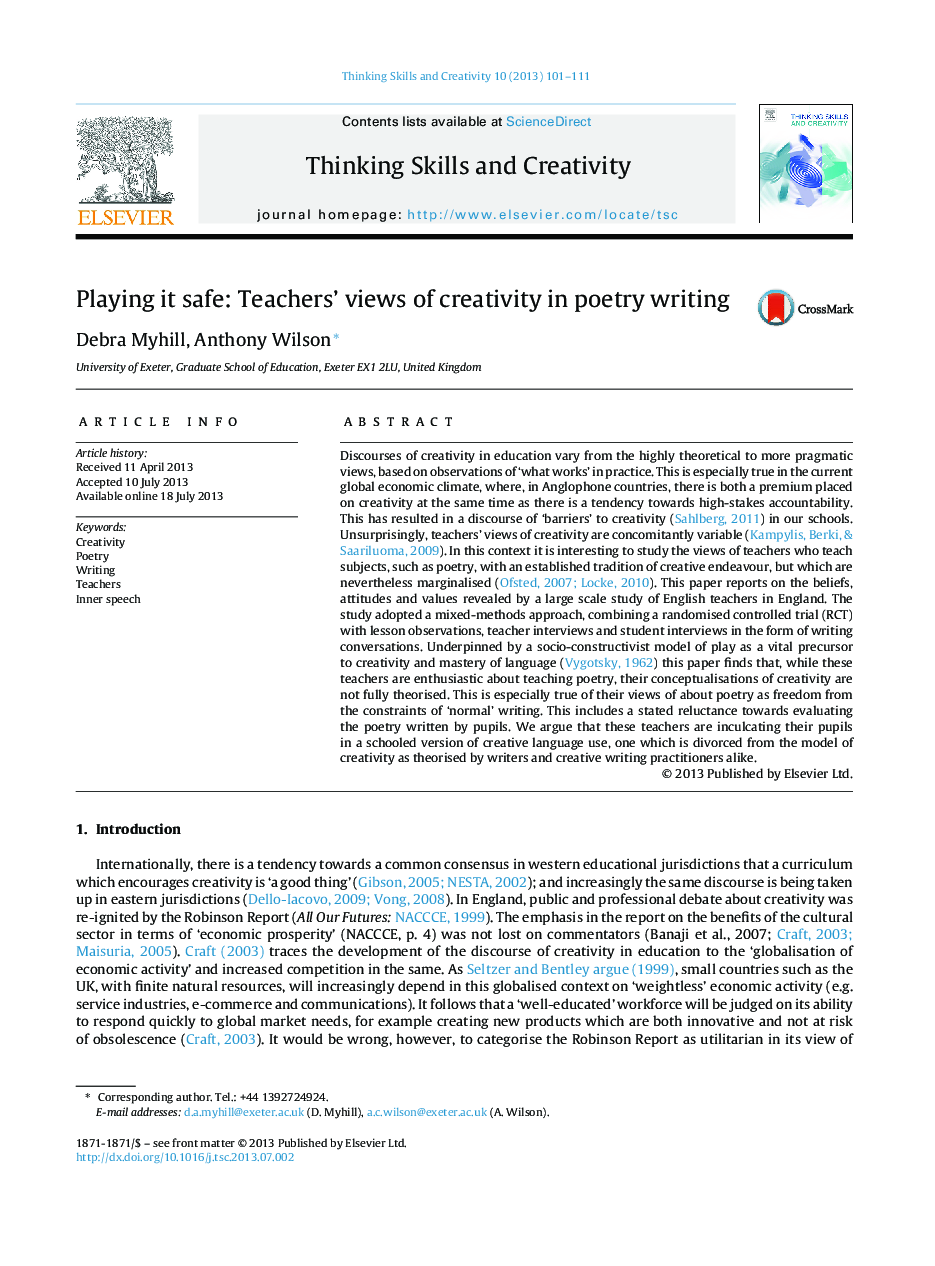| Article ID | Journal | Published Year | Pages | File Type |
|---|---|---|---|---|
| 375636 | Thinking Skills and Creativity | 2013 | 11 Pages |
•Whilst these teachers are enthusiastic about teaching poetry, their conceptualisations of creativity are not fully theorised.•These teachers express reluctance towards assessing the poetry written by pupils.•These teachers are inculcating their pupils in a ‘schooled’ model of creative language use.•This is divorced from the model of creativity as theorised by writers and creative writing practitioners alike.
Discourses of creativity in education vary from the highly theoretical to more pragmatic views, based on observations of ‘what works’ in practice. This is especially true in the current global economic climate, where, in Anglophone countries, there is both a premium placed on creativity at the same time as there is a tendency towards high-stakes accountability. This has resulted in a discourse of ‘barriers’ to creativity (Sahlberg, 2011) in our schools. Unsurprisingly, teachers’ views of creativity are concomitantly variable (Kampylis, Berki, & Saariluoma, 2009). In this context it is interesting to study the views of teachers who teach subjects, such as poetry, with an established tradition of creative endeavour, but which are nevertheless marginalised (Ofsted, 2007 and Locke, 2010). This paper reports on the beliefs, attitudes and values revealed by a large scale study of English teachers in England. The study adopted a mixed-methods approach, combining a randomised controlled trial (RCT) with lesson observations, teacher interviews and student interviews in the form of writing conversations. Underpinned by a socio-constructivist model of play as a vital precursor to creativity and mastery of language (Vygotsky, 1962) this paper finds that, while these teachers are enthusiastic about teaching poetry, their conceptualisations of creativity are not fully theorised. This is especially true of their views of about poetry as freedom from the constraints of ‘normal’ writing. This includes a stated reluctance towards evaluating the poetry written by pupils. We argue that these teachers are inculcating their pupils in a schooled version of creative language use, one which is divorced from the model of creativity as theorised by writers and creative writing practitioners alike.
